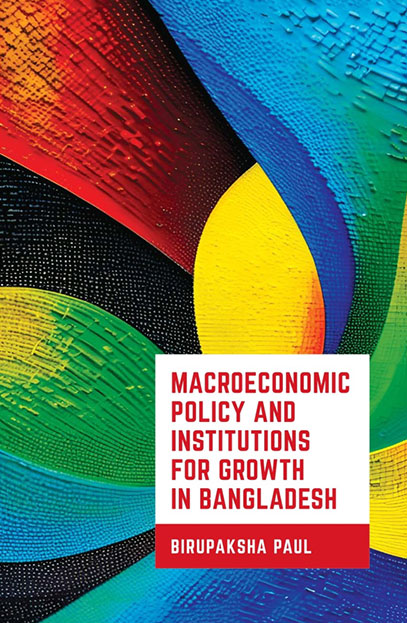- Shop
- Business, Economics and Development
- Macroeconomic Policy and Institutions For Growth in Bangladesh
Macroeconomic Policy and Institutions For Growth in Bangladesh
2023 https://uplbooks.com/shop/9789845064095-macroeconomic-policy-and-institutions-for-growth-in-bangladesh-11924 https://uplbooks.com/web/image/product.template/11924/image_1920?unique=b656810
| Language: English |
Tags :
Book Info
Bangladesh’s respectable growth performance has made the country an intriguing story of development. The country could have achieved even higher growth had it adopted state-of-the-art macro policy by building stronger institutions. Policy favouritism to the super-rich has kept on producing gradual erosion in fiscal capacity, ever-increasing default loans, incessant money laundering, and debility in the capital market. Growing income inequality, rising unemployment, and environmental degradation pose formidable threats to Bangladesh’s goal of becoming a developed nation by the early 2050s. Macro policy must be constructed with adequate knowledge. Expertise, rather than sheer obedience with mediocrity, should determine institutional leaderships. A quality marriage between modern macro policy and accountable institutions must be ascertained to make the nation’s growth well-sustained, development inclusive.

Birupaksha Paul
Birupaksha Paul is a professor of economics and finance at the State University of New York at Cortland. He holds an MSS in economics from Dhaka University, an MBA in finance from the University of Technology-Sydney, and a PhD in economics from Binghamton University, where he also serves as guest faculty. In 2015, he received SUNY Cortland’s Outstanding Research Award. Paul served as chief economist at Bangladesh Bank (2015-2016) and is a South-Asian counselor at Cornell University. He taught at Dhaka University and was a visiting fellow at BIDS in 2017. A pioneer in debate writing in Bangladesh, Paul won numerous accolades in debate and public speaking.



